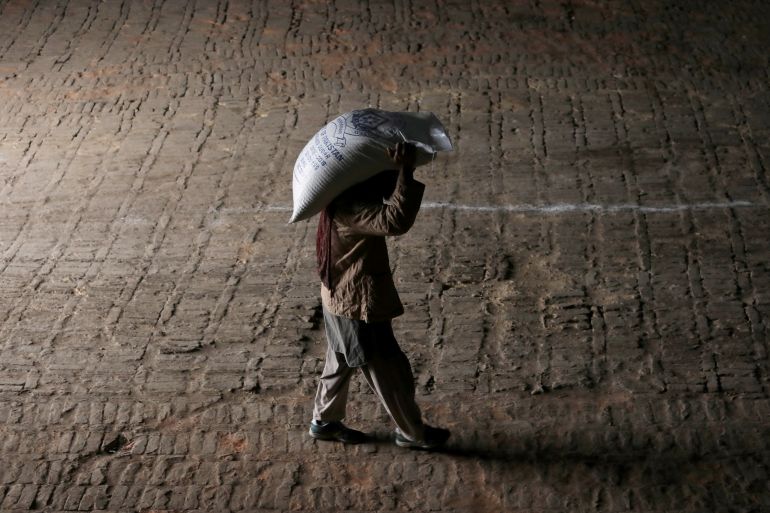Pakistan allows sugar, cotton imports from India as ties improve
In the latest indication of a growing thaw in relations between South Asian neighbours, Pakistan says it will allow some imports to ease price pressure.

Islamabad, Pakistan – Pakistan’s government lifted a nearly two-year ban on the import of sugar from eastern neighbour India, the latest indication of a growing thaw in frozen relations between the South Asian rivals.
Speaking in the capital Islamabad on Wednesday, Finance Minister Hammad Azhar said Pakistan would allow the import of 500,000 tonnes of white sugar from India to combat spiking domestic prices.
Keep reading
list of 4 items‘India desires cordial relations’: Modi in letter to Pakistan PM
India, Pakistan hold water-sharing talks amid thaw in frozen ties
Pakistan army chief says ‘it is time to bury the past’ with India
“In our neighbouring country, in India, the price of sugar is much lower than in Pakistan,” said Azhar. “So we have decided to open sugar trade with India, to the limit of 500,000 tonnes in the private sector.”
Azhar said a ban on the import of raw cotton from India would also be lifted “by the end of June”.
“There is a large demand for cotton in Pakistan right now. Our exports have increased in textiles and the cotton crop was not good last year.
“So we allowed imports of cotton from all over the world, but it is not allowed from India and that causes a direct impact on [small and medium enterprises],” he said.
New Delhi so far offered no comment on the decision.
Thaw in relations
The move to reopen trade on two major commodities comes after the Indian and Pakistani prime ministers exchanged letters in the last week, with Imran Khan saying his country “desire[s] peaceful, cooperative relations with all neighbours, including India”.
Earlier, Indian PM Narendra Modi wrote to Khan on the occasion of Pakistan Day – held to mark the political launch of the movement for an independent Muslim homeland in the subcontinent – where local media quoted him as saying, “India desires cordial relations with the people of Pakistan.”
The two countries have fought three full-scale wars since gaining independence from the British in 1947, with tensions centred on the disputed territory of Kashmir, which both claim in full but administer separate parts.
Last month, the two country’s militaries agreed to abide by an oft-violated 2003 ceasefire agreement in Kashmir, helping to reduce almost daily firing incidents by both sides.
Relations between the South Asian neighbours have been virtually frozen since February 2019, when India blamed a Pakistan-based armed group for the bombing of an Indian security convoy in Indian-administered Kashmir.
The attack sparked a military standoff that saw both sides bomb each others’ territory and an aerial dogfight that saw at least one Indian fighter jet shot down.
This month, however, the agreement on the ceasefire has been followed by a series of conciliatory statements, notably from Pakistan’s powerful army chief General Qamar Javed Bajwa.
Khan’s government has been battling rising inflation in recent months, and the opening of trade with eastern neighbour India will likely help ease the pressure on some basic commodities.
Last month, Pakistan recorded consumer price inflation (CPI) at 8.7 percent compared with the year before, with the prices of food items rising by almost 10 percent, according to official data (PDF).
Year-on-year, the price of sugar has risen by more than 17 percent.
Asad Hashim is Al Jazeera’s digital correspondent in Pakistan @AsadHashim